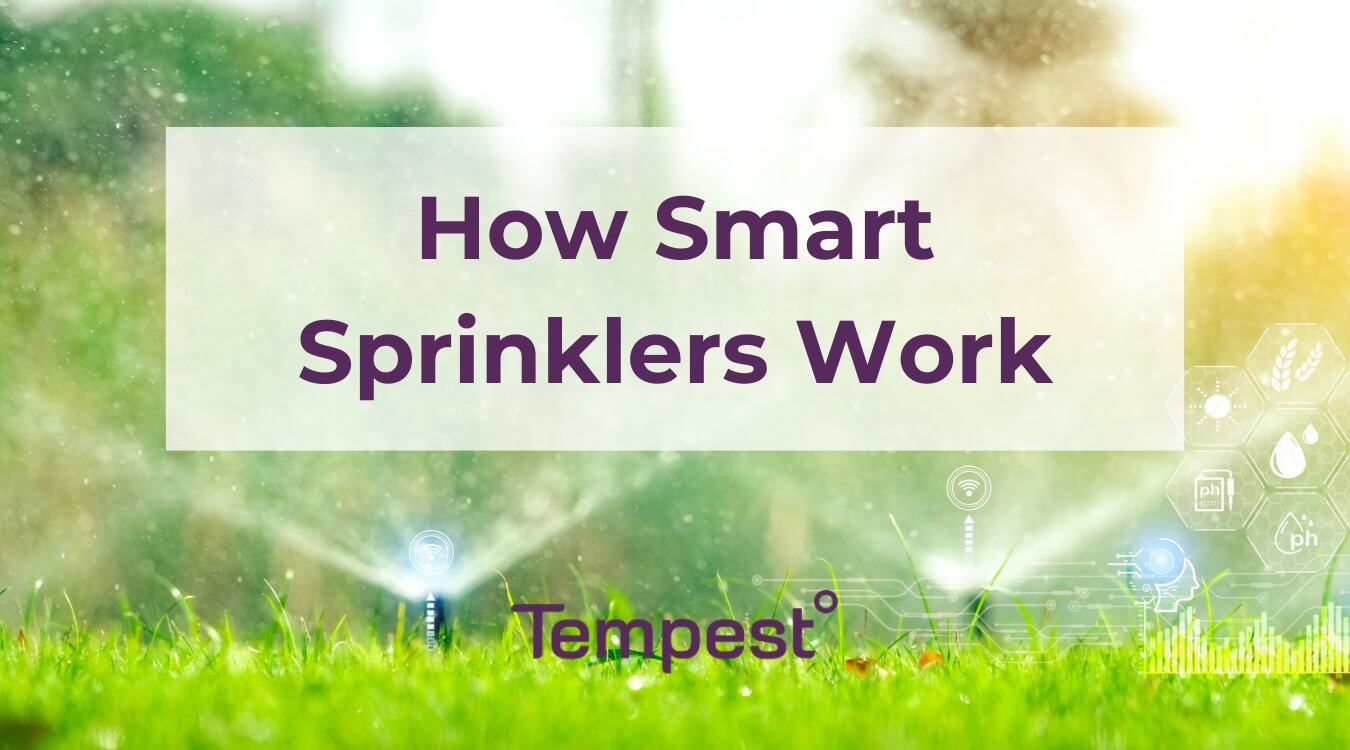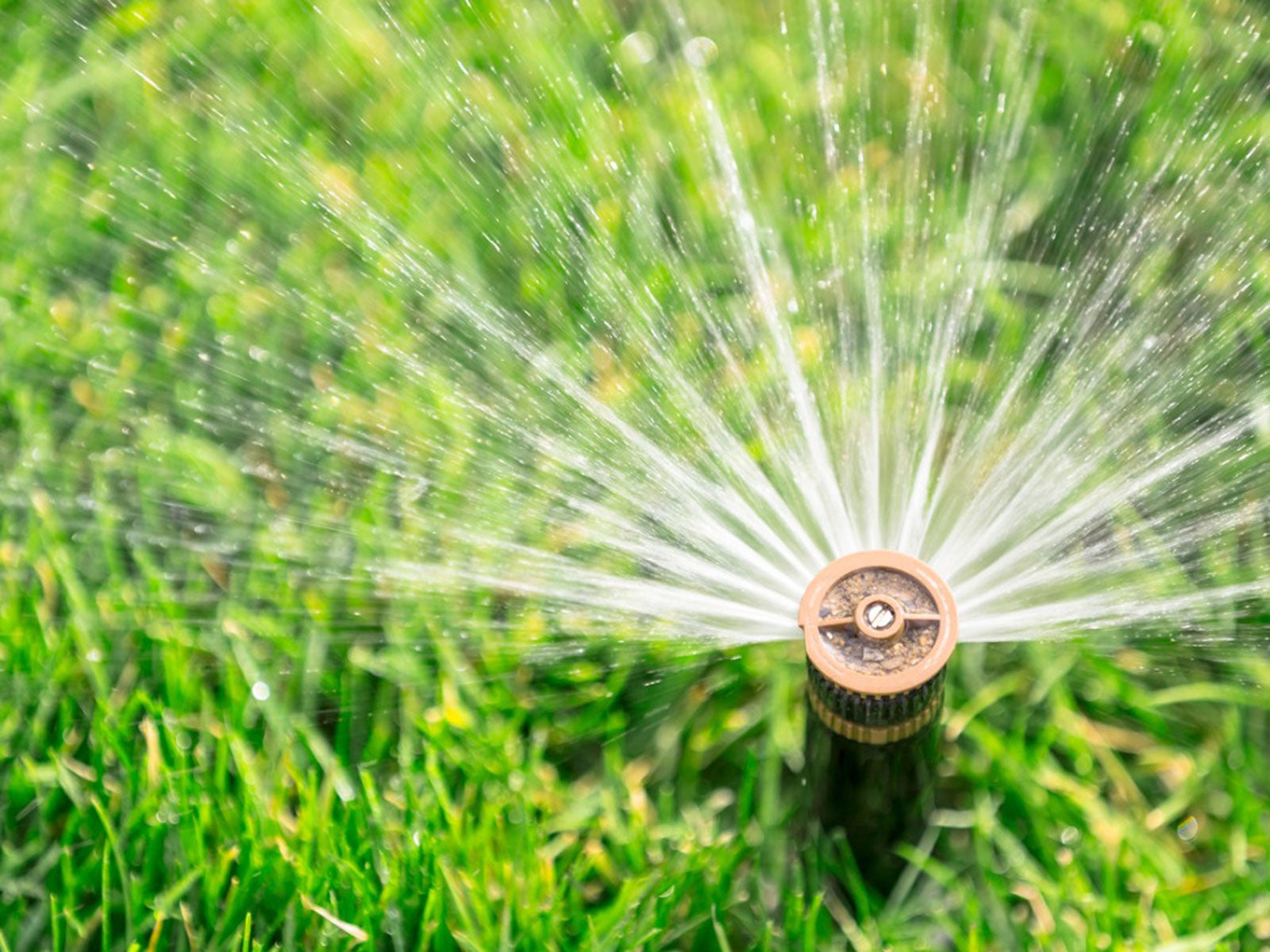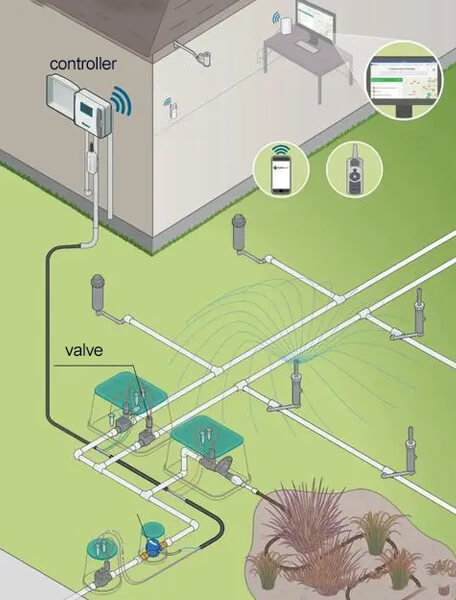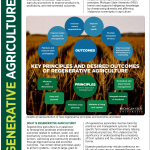Imagine waking up to find your garden thriving, lush, and perfectly watered, all without you lifting a finger. How often have you wished for an easier way to keep your lawn green and your plants happy?
If you’re tired of wasting time and water with conventional methods, smart irrigation systems might be the answer you’ve been looking for. These innovative systems promise to take the guesswork out of watering your yard, saving you both time and resources.
But how exactly do they work their magic? By understanding the science and technology behind smart irrigation, you’ll discover how they can transform the way you care for your garden. Curious to learn more? Dive into the world of smart irrigation and see how it can revolutionize your outdoor space.

Components Of Smart Irrigation
Smart irrigation systems are transforming the way we water our landscapes. But what makes these systems so effective? It’s all about the components. Understanding these parts can help you maximize efficiency and save water, time, and money. Let’s break down the essential components that make smart irrigation systems work seamlessly.
Weather Sensors
Weather sensors are the eyes and ears of your irrigation system. They monitor local weather conditions, including rainfall and temperature. When rain is detected, these sensors can automatically adjust or shut off the irrigation schedule. This ensures that your plants only get the water they need, preventing overwatering and saving you money on your water bill.
Soil Moisture Sensors
Soil moisture sensors are a game changer. They measure the moisture content in the soil in real-time. This data helps the system decide when to water your plants and how much water they need. With this component, you can avoid watering dry patches or waterlogging your garden, ensuring your plants thrive.
Smart Controllers
Smart controllers are like the brain of your irrigation system. They process data from sensors and determine the watering schedule. Some advanced controllers even connect to your smartphone, allowing you to adjust settings from anywhere. This level of control helps you manage your landscape effectively, even when you’re away from home.
Flow Meters
Flow meters track the amount of water being used by your system. They help you detect leaks or inefficiencies, which can be costly if left unchecked. With a flow meter, you can quickly identify issues and make necessary adjustments to conserve water.
Drip Irrigation Systems
Drip irrigation systems deliver water directly to the plant roots. This method reduces water waste and evaporation. It’s perfect for gardens or landscapes with specific watering needs. By using drip systems, you target water usage precisely, ensuring each plant gets the right amount of hydration.
Have you ever thought about how much water you could save with a smart irrigation system? These components work together to optimize water usage and keep your landscape looking lush. Whether you’re a seasoned gardener or just starting, smart irrigation can simplify your watering routine and benefit the environment. What’s stopping you from making the switch?

Technology Behind Smart Irrigation
Smart irrigation systems are transforming how we manage water in gardens. These systems use advanced technology to optimize water usage. They ensure plants get the right amount of water, at the right time. This technology helps conserve water and supports healthy plant growth.
Understanding Sensors And Controllers
Sensors are crucial components in smart irrigation. They collect data from the environment. They measure soil moisture, temperature, and humidity. Controllers analyze this data. They decide when and how much to water. This automated process reduces water waste. It ensures efficient irrigation.
Role Of Weather Data
Weather data integration is vital in smart irrigation systems. These systems connect to weather forecasts. They adjust watering schedules based on predicted rain or drought. This feature prevents unnecessary watering. It saves water and keeps plants healthy.
Wireless Connectivity
Wireless connectivity enhances smart irrigation systems. Homeowners can control their irrigation systems remotely. Using apps, they adjust settings from anywhere. This flexibility is convenient. It allows for quick changes based on plant needs.
Benefits Of Data Analytics
Data analytics play a role in smart irrigation technology. Systems collect data over time. They analyze patterns in water usage and plant growth. This information helps optimize irrigation strategies. It ensures efficient water management.
Integration With Smart Home Devices
Smart irrigation systems integrate with smart home devices. They sync with home assistants like Alexa or Google Home. This integration allows voice commands for irrigation control. It simplifies the process, making it user-friendly.
Benefits Of Smart Irrigation Systems
Smart irrigation systems offer numerous advantages for garden enthusiasts and farmers. These advanced systems ensure water is used efficiently, reducing waste. By leveraging technology, they adjust watering schedules based on real-time data. This results in healthier plants and lower water bills. Let’s explore the benefits of using smart irrigation systems in more detail.
Cost Savings
Smart irrigation systems help save money on water bills. They provide the right amount of water needed for plants. This prevents overwatering and reduces waste. Long-term savings become significant, especially during dry seasons.
Water Conservation
Conserving water is crucial for the environment. Smart systems adjust to weather conditions. They use sensors to determine soil moisture levels. This ensures water is only used when necessary. Such precision minimizes water usage, benefiting the planet.
Convenience And Automation
These systems offer unmatched convenience. With automation, there’s no need for manual watering. Users can control the system via smartphone apps. This makes managing irrigation schedules easy, even from afar.
Healthier Plants
Plants thrive with the right amount of water. Smart systems prevent issues like root rot from overwatering. They ensure plants receive consistent moisture. This leads to healthier growth and vibrant gardens.
Time Efficiency
Smart irrigation saves time for users. There’s no need to monitor the weather constantly. The system handles adjustments automatically. This gives users more freedom for other tasks.
Future Of Smart Irrigation
Smart irrigation systems use sensors to monitor soil moisture and weather data. They automatically adjust watering schedules, ensuring plants receive the right amount of water. This technology helps conserve water and supports healthier plant growth.
The future of smart irrigation is bright and full of promise. As technology advances, these systems are becoming more efficient and user-friendly. Homeowners and farmers alike are discovering the benefits of smart irrigation, which not only saves water but also enhances plant health.Understanding The Role Of Ai In Smart Irrigation
Artificial Intelligence (AI) is transforming how we manage our gardens and farms. AI systems analyze weather forecasts, soil moisture levels, and plant needs to adjust watering schedules. This ensures plants receive the right amount of water without waste.Integration With Weather Data
Smart irrigation systems connect to local weather stations to access real-time data. This allows them to pause watering during rain or increase it during dry spells. Have you ever thought about how much water your garden could save with this feature?Customization For Individual Needs
Every garden is unique, and smart irrigation systems recognize this. You can customize settings for different zones in your yard, ensuring each area gets the attention it needs. Whether it’s a vegetable patch or a flower bed, each receives optimal care.Wireless Connectivity And Mobile Control
Imagine adjusting your irrigation schedule from your smartphone while sipping coffee in a café. Wireless connectivity makes this a reality. With a few taps on your device, you can manage your system from anywhere.Monitoring And Alerts
Smart systems provide real-time alerts if something goes wrong. Whether it’s a leak or a malfunction, you’ll be notified immediately. This proactive feature saves both water and potential repair costs.Environmental And Economic Benefits
Using less water not only conserves a precious resource but also reduces your water bill. The efficiency of smart irrigation systems translates to significant savings. How much could you save by making the switch? The future of smart irrigation is not just about technology; it’s about creating sustainable practices. Embracing these systems means you’re contributing to environmental conservation. Why not consider upgrading to a smarter, more efficient way of watering?
Conclusion
Smart irrigation systems conserve water and boost plant health. They adapt to weather changes. Sensors and controllers manage water use efficiently. This technology suits gardens, farms, and landscapes. It reduces waste and lowers costs. Users enjoy ease and precision. Automated scheduling saves time and effort.
Smart irrigation offers environmental benefits. It supports sustainable practices. With these systems, achieving a lush garden becomes easier. Homeowners and farmers can benefit greatly. Consider smart irrigation for your green spaces. It’s a wise choice. A step towards a greener future.



